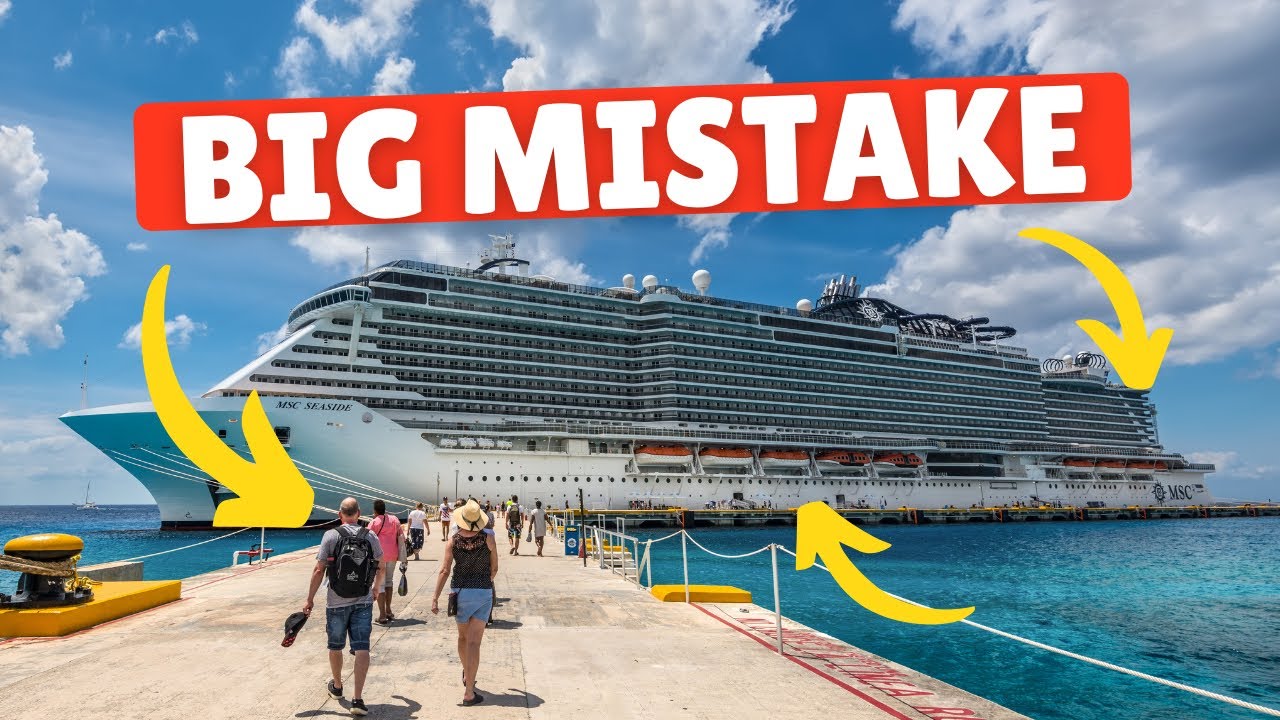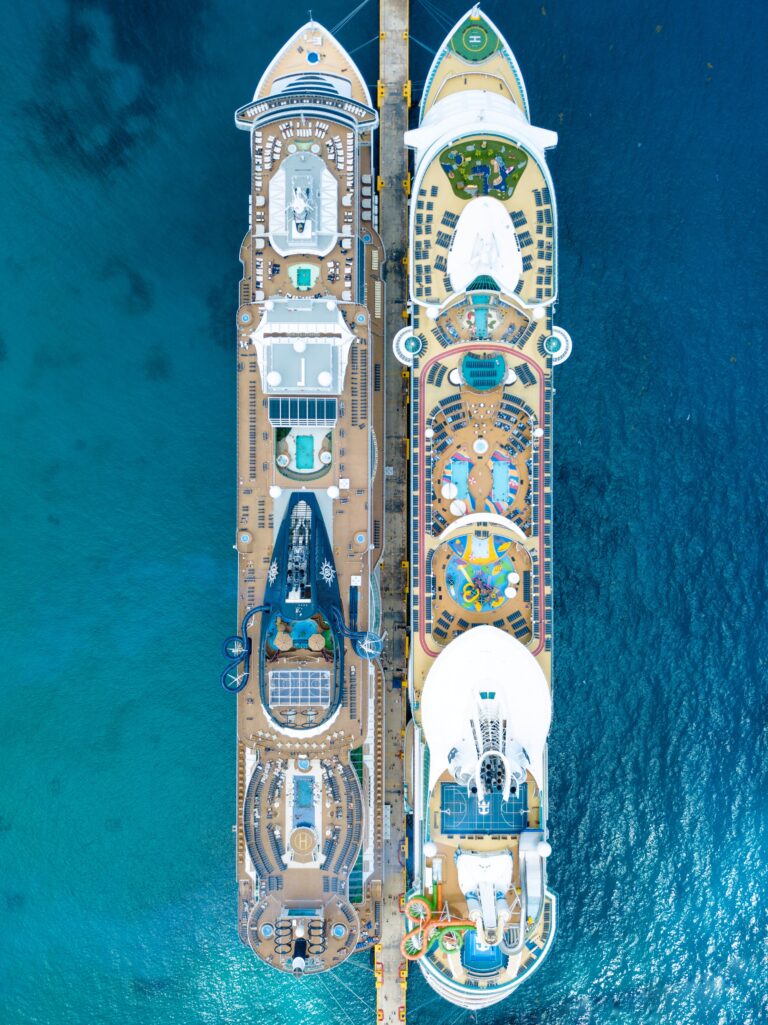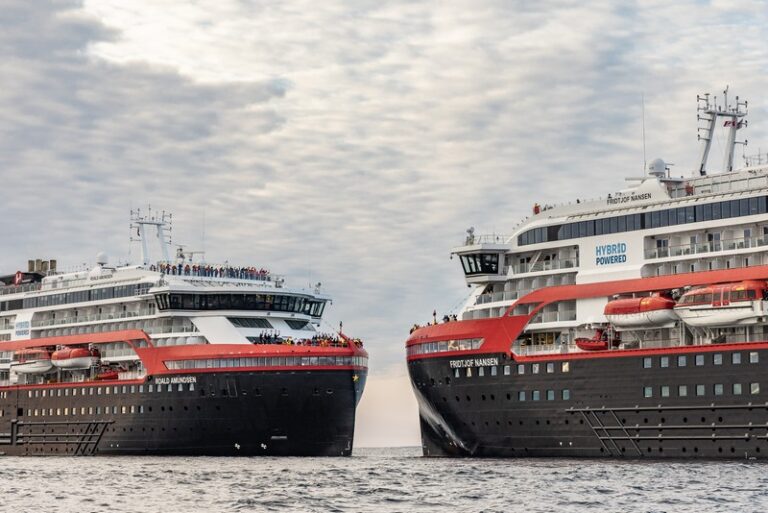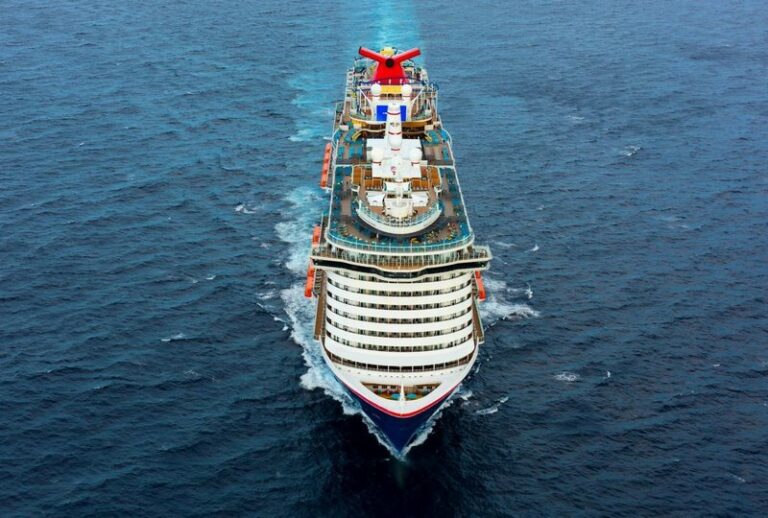Tips for a Successful First Cruise Experience
When it comes to embarking on your first cruise, there are several key factors to consider for a successful and enjoyable experience. In a video by Tips For Travellers, host Gary Bembridge shares his personal mistakes from his early cruising days and offers valuable tips to help you navigate the world of cruising. He discusses the importance of choosing popular cruising regions such as the Caribbean, the Mediterranean, or Alaska, as these areas are well-suited for first-time cruisers with ample ports and excursions to explore. Bembridge also emphasizes the significance of selecting the right cruise line, categorizing them into mass, premium, small, and ultra-luxury cruise lines, each catering to different preferences and experiences. He further provides insights on cabin selection, budgeting, booking strategies, and the importance of understanding the cruise contract and cancellation policies. This comprehensive guide will ensure a smooth and exciting first cruise experience.
As someone who made numerous mistakes during their own early cruising days, Gary Bembridge of Tips For Travellers understands the common pitfalls that many first-time cruisers encounter. He aims to make your first cruise unforgettable by sharing the 7 most important things you need to know before embarking on this adventure. Bembridge’s tips cover a range of topics, including choosing the best first cruise destination in regions like the Caribbean, the Mediterranean, or Alaska, and selecting the right cruise line that aligns with your preferences. Cabin selection, budget considerations, booking strategies, and understanding the cruise contract and cancellation policies are also discussed in-depth. By following these invaluable tips, you’ll be well-prepared to embark on your first cruise and have the time of your life.
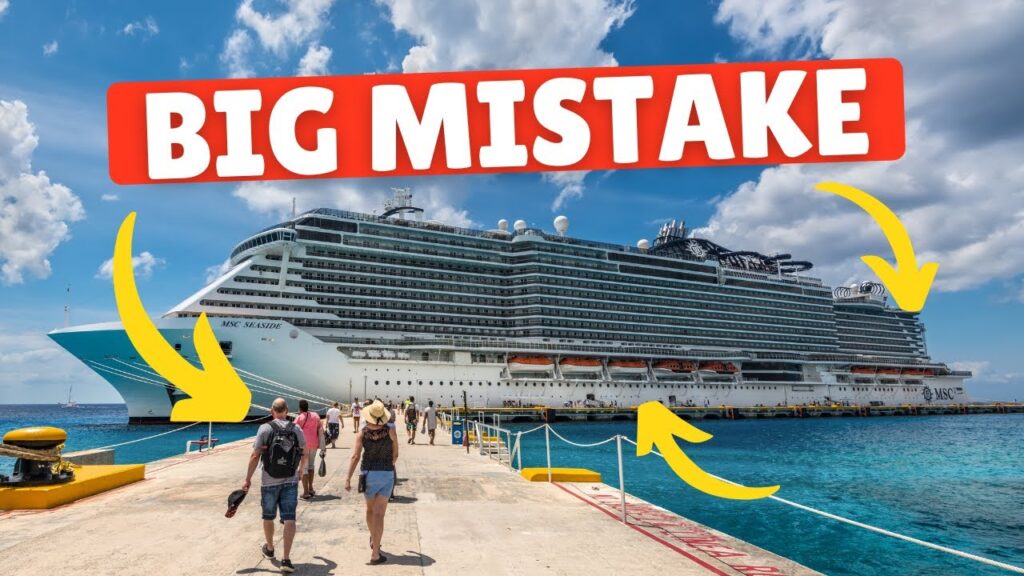
Choosing the Right Cruise Region
Choosing the right cruise region is the first and most important decision you will make when planning your first cruise. With so many options available, it can be overwhelming to decide where to go. However, there are several popular cruising regions that are perfect for first-time cruisers.
Popular cruising regions for first-time cruisers
-
Caribbean – The Caribbean is a classic choice for first-time cruisers. With its stunning turquoise waters, white sandy beaches, and vibrant culture, the Caribbean offers something for everyone. Whether you want to relax on the beach, explore historic sites, or indulge in water sports, the Caribbean has it all.
-
Mediterranean – If you have a taste for history, art, and gastronomy, the Mediterranean is the ideal cruising region for you. From the ancient ruins of Rome and Athens to the picturesque coastal towns of the French Riviera and the Greek Islands, the Mediterranean is a treasure trove of cultural experiences.
-
Alaska – For nature enthusiasts, Alaska is an incredible destination. From towering glaciers and snow-capped mountains to breathtaking wildlife encounters, Alaska offers a unique and awe-inspiring cruising experience. Be prepared to witness the beauty of whales, bald eagles, and grizzly bears in their natural habitat.
-
Bahamas – If you’re looking for a short and budget-friendly cruise, the Bahamas is a great option. Just a stone’s throw away from Florida, the Bahamas offers crystal-clear waters, charming island towns, and exciting activities such as snorkeling, swimming with dolphins, and exploring underwater caves.
Selecting the Best Cruise Line
Once you’ve chosen your desired cruise region, the next step is to select the cruise line that suits your preferences and needs. The cruise industry offers a wide range of options, catering to different budgets, lifestyles, and travel preferences.
Categorizing cruise lines
Cruise lines can be categorized into different segments, each offering a unique cruising experience. Here are the main categories:
-
Mass market cruise lines – These cruise lines, such as Carnival Cruise Line and Royal Caribbean International, are known for their larger ships and extensive onboard amenities. They often cater to families and offer a wide array of entertainment options, including water parks, casinos, Broadway-style shows, and fine dining.
-
Premium cruise lines – Premium cruise lines, such as Celebrity Cruises and Princess Cruises, offer a more refined experience. They typically have smaller ships with a focus on upscale amenities, gourmet dining, and enrichment programs, such as lectures and art classes.
-
Luxury cruise lines – Luxury cruise lines, including Crystal Cruises and Regent Seven Seas Cruises, provide a truly luxurious experience. With their spacious suites, personalized service, exquisite dining options, and all-inclusive pricing, these cruise lines cater to discerning travelers who seek the utmost indulgence.
Cruise lines for different preferences
-
Family-friendly cruise lines – If you’re traveling with children, consider cruise lines like Disney Cruise Line or Norwegian Cruise Line, which offer extensive kids’ clubs, age-appropriate activities, and family-friendly entertainment.
-
Adventure-focused cruise lines – For those seeking adventure and exploration, cruise lines such as Windstar Cruises and Lindblad Expeditions offer unique itineraries with a focus on adventure activities like kayaking, snorkeling, and hiking.
-
River cruise lines – If you prefer a more intimate cruising experience and wish to explore inland waterways, river cruise lines like Viking River Cruises and AmaWaterways provide a comfortable and immersive journey through picturesque rivers and canals.

Booking the Right Cabin
Now that you’ve chosen your cruise region and cruise line, it’s time to book the right cabin. The cabin you choose can greatly impact your overall cruising experience, so it’s essential to consider certain factors to ensure a comfortable and enjoyable stay onboard.
Avoiding noise disturbances
One common concern when booking a cabin is noise disturbances. To avoid being disturbed by loud noises, aim to avoid cabins that are located near busy areas like elevators, restaurants, or nightclubs. Additionally, cabins near crew work areas or on lower decks are more likely to experience noise from maintenance or cleaning activities. Choosing a cabin in the middle of the ship, away from these high-traffic areas, can help minimize noise disturbances.
Choosing a cabin surrounded by other cabins
Another consideration for booking the right cabin is the location within the ship. Many experienced cruisers recommend choosing a cabin that is surrounded by other cabins to minimize noise from neighboring areas. Cabins located between decks, rather than on the top or bottom of the ship, often provide a quieter environment. Additionally, cabins in the middle of the ship tend to experience less movement and rocking compared to those on the extremes.
When selecting a cabin, be sure to consider your specific preferences and needs. If you value natural light, choose a cabin with a balcony or large windows. If you prefer to save money and don’t mind an interior cabin, you can still enjoy your cruise experience while spending less on accommodations.

Proper Budgeting for a Cruise
Budgeting is an important aspect of planning any trip, and a cruise vacation is no exception. While cruises offer great value for money with their all-inclusive pricing, it’s crucial to consider additional costs and factor them into your budget.
Considering additional costs
While the initial cruise fare covers the basics, there are several additional costs to keep in mind when budgeting for a cruise:
-
Gratuities – Most cruise lines have a recommended gratuity amount per person, per day, for the onboard staff. Be sure to include these gratuities in your budget as they contribute to the hard work and excellent service provided by the crew.
-
Beverages – Unless you opt for a cruise line with all-inclusive beverages, budget for alcoholic drinks, specialty coffees, and soft drinks, which are usually not included in the initial fare.
-
Specialty dining – While most cruise lines offer complimentary dining options, they may also have specialty restaurants that come with an additional charge. If you want to indulge in gourmet dining experiences, allocate a separate budget for these specialty venues.
Factors to include in the budget
When budgeting for a cruise, it’s essential to consider the following factors:
-
Cruise fare – The base fare for the cruise, which includes accommodations, meals, and most onboard activities.
-
Airfare or transportation to the port – If your cruise does not depart from your home city, budget for airfare or other transportation costs to get to the departure port.
-
Pre- or post-cruise accommodations – If you plan to arrive a day or two before or stay after the cruise ends, factor in the cost of additional hotel accommodations.
-
Travel insurance – While optional, purchasing travel insurance is highly recommended to protect your investment in case of unforeseen circumstances or cancellations.
-
Shore excursions – Allocate a budget for shore excursions, as many ports offer a variety of activities and tours that can enhance your overall cruise experience.
By considering these additional costs and factoring them into your budget, you can ensure that you have a comprehensive understanding of the total expenses involved in your cruise vacation.

When to Book for Best Deals
Booking your cruise at the right time can often lead to significant savings and access to early bird deals and discounts. By understanding the best time to book, you can take advantage of these cost-saving opportunities.
Taking advantage of early deals and discounts
For the best chance at securing early deals and discounts, it’s recommended to book your cruise well in advance. Many cruise lines release their itineraries up to two years in advance, allowing early bookers to have the first pick of cabins and take advantage of special promotions. Typically, booking six to twelve months prior to departure provides a good balance between availability and early booking incentives.
Tracking fares for potential lower prices
Another strategy to potentially secure the best deals is to monitor the fares even after you’ve booked your cruise. In some cases, cruise prices may drop before the sailing date, especially during off-peak seasons or when the ship has unsold cabins. Several websites and cruise booking platforms offer fare tracking services, which will notify you if the fare for your booked cabin decreases. If the price drops, you can contact the cruise line or your travel agent to inquire about rebooking at the lower rate or receiving onboard credits.
Remember to be flexible with your travel dates, as cruising during less popular times can lead to more significant savings.


